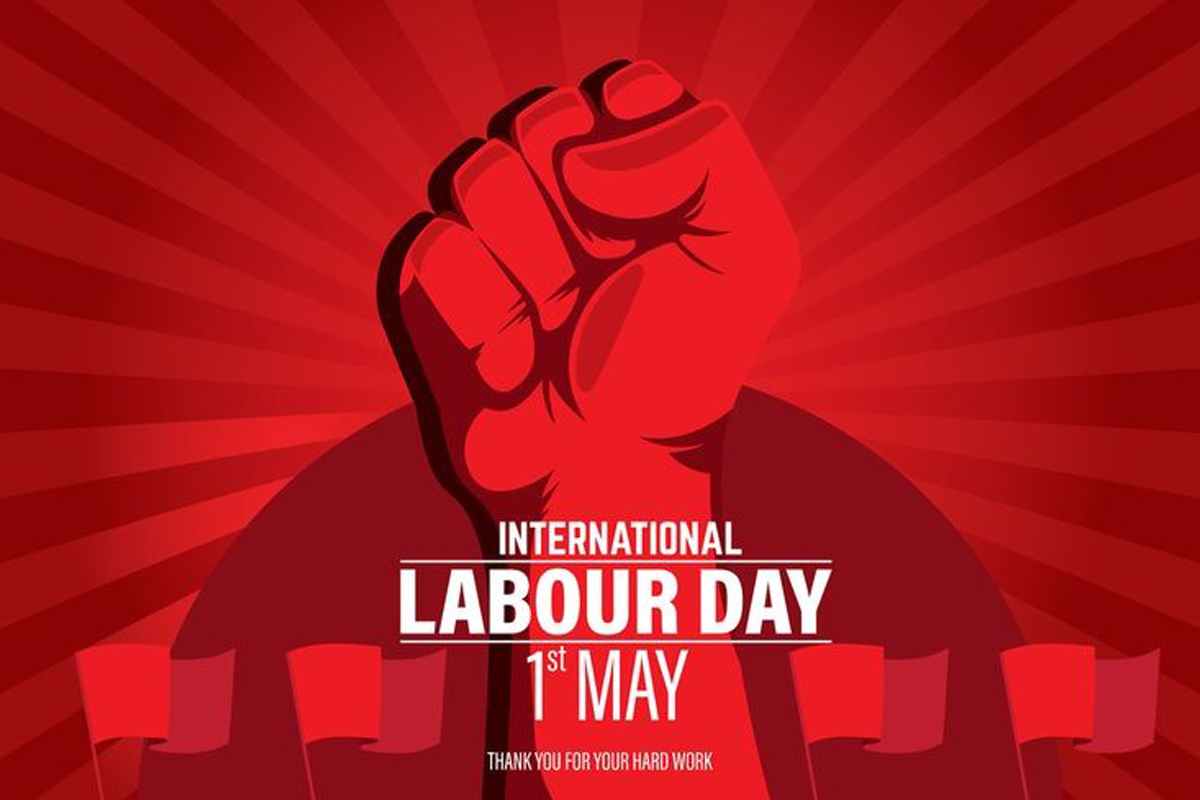‘Twilight’ star Peter Facinelli, Lily Anne Harrison welcome their first baby: Happy Labor Day
'Twilight' star Peter Facinelli and Lily Anne Harrison welcomed their first baby together on Labor Day.
With debates on working hours, especially the recent discussion on the seventy-hour work week setup proposed by Narayan Murthy, which took over the corporate world by storm, work-life balance, and mental health, it has become the need of the hour that we take a trip down memory lane to recollect why we recognise the day. With every passing day, employees are expected to devote almost half of their day or more towards work to be ahead in the race in hopes of better pay, recognition, and promotion.

The celebration of International Workers Day on 1 May every year to honour the workers’ reasonable demands has turned into a ritual. It was observed after the Haymarket Affair that took place in Chicago in 1856. On this day in 1856, the workers called a general strike to rightfully urge for a forty-hour work week and better working conditions against the practised seventy-hour or longer work week with abhorrent working conditions for factory workers in industrialising cities. The strike culminated in the Haymarket Riot after an unidentified person threw a bomb, resulting in casualties, injuries, and the subsequent dispersion of the strike.
After several years since the incident, we commemorate the workers’ efforts towards dissenting and demanding dignity in labour. However, the question that surfaces to mind is whether, after all these years, with rapid expansion in white-collar jobs, we need to remind ourselves of the true spirit behind Labour Day.
With debates on working hours, especially the recent discussion on the seventy-hour work week setup proposed by Narayan Murthy, which took over the corporate world by storm, work-life balance, and mental health, it has become the need of the hour that we take a trip down memory lane to recollect why we recognise the day. With every passing day, employees are expected to devote almost half of their day or more towards work to be ahead in the race in hopes of better pay, recognition, and promotion.
Advertisement
A twelve-hour workday has lately become synonymous with working in an organised corporate setup. In a survey by the International Labour Organisation, it was revealed that India ranks 7th in the list of countries with the longest work weeks, with the average working hours being 46.7 per week and 51 per cent of people working for 49 hours or more per week. When asked about the suggestion of a seventy-hour work week in a poll by Inshorts, 84 per cent of respondents were against it, claiming it to be unsustainable and without any positive impact on productivity, with 47 per cent citing a toll on mental health. Further, a survey by the platform Indeed demonstrated that 71 per cent of professionals prefer flexibility in working hours and work location over high pay, claiming an increase in productivity and better work-life balance in such a setup.
Another facet that has been gaining attention lately is the massive number of layoffs that companies are indulging in, with several employees being rendered jobless overnight, including giants like Alphabet and Amazon announcing them. Although these measures may be taken due to the multiplicity of challenges that an organisation faces, the decision takes a severe toll on the laid-off employee’s mental and physical health.
Although white-collar employees get relatively superior and safer physical working conditions, just because they are not working in a field, their need for regulated hours and satisfactory pay has often been sidelined, ignoring the emotional and mental stress along with a lack of work-life balance. With no momentous event in history to uphold their fair asks, and with prominent leaders proposing a high escalation in working hours, another Labour Day may not come as a surprise when a corporate employee can be subject to the same issues that caused the inception of Labour Day.
While a lot of companies have started to take several steps towards ensuring employee satisfaction, recognition, a supportive work environment, and work-life balance in the past couple of years, the practice becoming the norm is still a dream for a lot of employees. This being said, the celebration of International Workers Day should be aimed at remembering the workers before us, celebrating all kinds of work, be it blue-collared, white-collared, or entrepreneurial, and upholding the spirit and dignity of work.
Advertisement